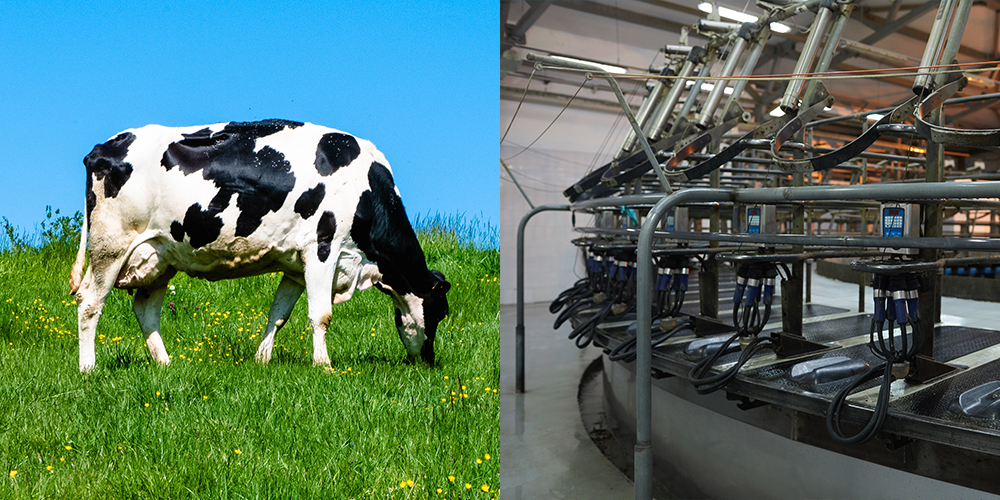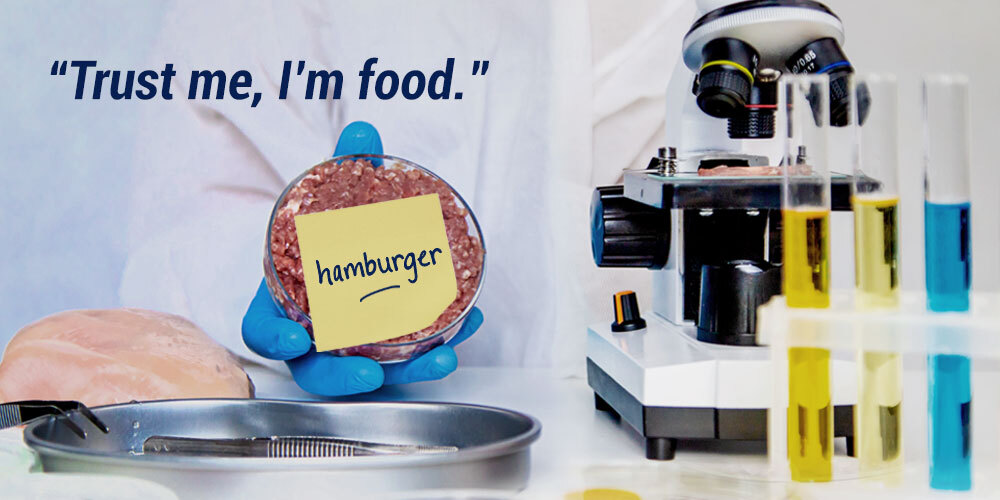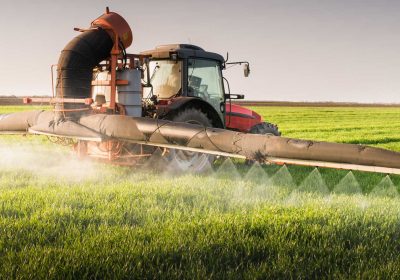There are very serious hidden dangers that neither you nor Congress are being told about linked to ‘precision fermentation’ that’s being framed by its makers as the “Future of Food”. Let Congress know your concerns and demand transparency from the FDA by taking action now!
THE TOPLINE
- Precision fermentation (PF) uses genetically modified microbes to produce ingredients for lab-grown dairy, meat, and other synthetic biology (‘synbio’) foods—but the risks remain poorly understood.
- PF foods are entering the market with little or no independent oversight, despite potential dangers from toxin-producing microbes, genetic instability, allergenic proteins, and contamination.
- Consumers are being sold a high-tech illusion of “sustainable” food, while the reality is these foods have huge question marks about their long-term safety.
What Is Precision Fermentation?
Precision fermentation (PF) is being promoted as the future of food. Instead of taking proteins, fats, or enzymes from nature, PF companies program microbes like yeast or bacteria to act as tiny factories, churning out copies of food ingredients. These engineered proteins are then purified and added to products marketed as “milk,” “cheese,” “meat,” and more. This approach in the food industry shares parallels with what’s happening in Big Pharma with its adoption of mRNA technology that gets the body, not a chemical factory, to produce the desired therapeutic agent.
Industry giants like Nestlé, Danone, and General Mills are already experimenting with synbio ingredients, while startups such as Perfect Day push “animal-free dairy” onto the market. Investors like Bill Gates openly declare their goal of completely reshaping how we eat.
But beneath the glossy promises of sustainability and innovation lies a host of unresolved safety and regulatory concerns. These concerns have been highlighted in recent peer-reviewed research, including a review by the United Nations’ Food and Agriculture Organization.
The Risks Industry Won’t Talk About
Questionable Microbial Hosts
While many PF products use “model” microbes like bakers’ yeast (Saccharomyces cerevisiae) or E. coli that have long safety records, there’s a growing interest in “non-model” species. Some of these—including filamentous fungi, Streptomycetes, Enterococcus faecium, and Clostridium butyricum—can produce toxins such as mycotoxins or bacterial endotoxins. These compounds can be dangerous even in small amounts.
Genetic Modifications with Unknown Consequences
PF almost always involves genetically engineered microorganisms. These GM microbes are designed to produce specific compounds, but genetic engineering is not precise—it can create unintended mutations or unstable traits. Regulators typically look only at the final product, not the process, meaning unforeseen genetic byproducts could slip through without scrutiny.
Allergenicity Concerns
Proteins produced in microbes can undergo chemical changes called post-translational modifications, especially in yeast and fungi. These changes can make the proteins structurally different from their natural counterparts, potentially increasing allergenic risks. While only a handful of allergy cases have been reported so far (such as with animal-free egg-white protein), the long-term impacts remain unknown.
Chemical Hazards
Though PF yields purified products, contamination risks persist. If plant-based nutrient broths used to feed microbes are not handled properly, they may introduce contaminants. And if unsafe host organisms are used, such as certain gram-negative bacteria, and purification is incomplete purification, there are real risks to consumers. This includes exposure to allergenic host cell proteins, misfolded proteins, antibiotics, surfactants, solvents, residual cleaning agents, and microbial contaminants such as mycotoxins or endotoxins.
Post-Processing Contamination
Purification is supposed to remove genetically modified microbes from the end product. But as with any industrial process, contamination can occur after production. Impurities and contamination of mRNA vaccines—that we were initially told would be squeaky clean—has, after all, been, and continues to be, a big issue. While no poisonings or outbreaks have yet been linked to PF foods, the risk is ever-present and will grow as more products hit the market.
The Regulatory Black Hole
One of the most concerning aspects of precision fermentation is its regulatory treatment. In the US, these foods often enter the market through the GRAS (Generally Recognized as Safe) process—meaning companies can declare their own products safe without any independent review.

Unlike Europe, where PF foods face novel food assessments, US regulators focus only on the final product, not the radical new methods used to create it. This means a synbio “milk protein” produced in a vat of genetically modified microbes is treated no differently than real dairy from a cow. Yes, really.
A recent lawsuit by the Organic Consumers Association and Toxin Free USA against Perfect Day exposed just how dangerous this can be. Independent testing found Perfect Day’s ProFerm whey protein was contaminated with fungal byproducts in quantities seven times higher than the protein itself, along with 93 compounds with no history of safe human consumption.
The Consumer Blind Spot
Public acceptance is being engineered as carefully as the microbes themselves. Surveys show nearly half of Gen Z say they’d try lab-grown meat—much higher than older generations. But very few consumers realize these products aren’t tested or labeled in a way that allows informed choice.
Meanwhile, lawmakers are starting to push back. Texas recently became the 7th U.S. state to restrict lab-grown meat, citing safety and transparency concerns. But without federal reform, PF foods are still slipping into the supply chain unnoticed, both as finished products and as ingredients added to other products.
The market for precision fermentation is expected to skyrocket from $3.2 billion in 2024 to over $100 billion by 2034. Yet beneath the claims of sustainability and innovation, PF represents a dangerous gamble with our food system, replacing natural, nutrient-rich foods with engineered imitations, exposing consumers to toxins, allergens, and genetic unknowns, all while bypassing meaningful oversight and public transparency.
Ultra-processed foods—now making up a staggering 60% of the average American’s calorie intake—have rightly become a focal point in the national health conversation, thanks in no small part to the leadership of RFK Jr. Yet the rapid growth of PF and synbio products signals another troubling shift away from real, nutrient-dense foods that humans have thrived on for millennia, and toward increasingly engineered, imitation food. At ANH, we believe consumers have the right to know what they’re eating—and the right to choose real food over synthetic substitutes.
Illusion of Precision, Reality of Risk
“Precision” is the industry’s new favorite word, meant to reassure consumers that the genetic tinkering used to produce these foods is exact, safe, and trustworthy. But just as ecosystems can’t be reduced to isolated parts, food cannot be reduced to engineered proteins and still be considered real.
Without stronger oversight, transparency, and independent testing, precision fermentation could become yet another example of innovation gone wrong—leaving consumers, farmers, and food sovereignty at risk.




